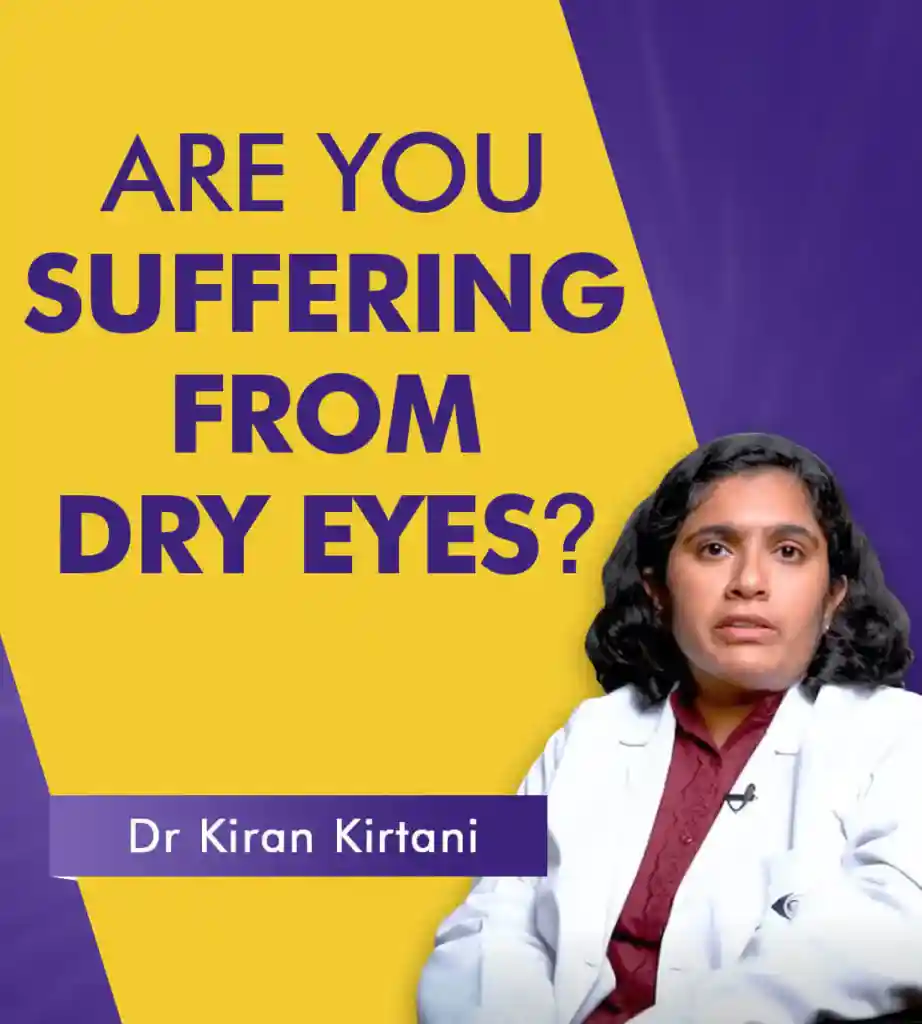What Is Dry Eye Syndrome?
Dry eye syndrome, also known as keratoconjunctivitis sicca, is a common eye condition characterized by a lack of sufficient lubrication and moisture in the eyes. It occurs when the tear glands do not produce enough tears or when the tears evaporate too quickly. This can result in discomfort, irritation, and blurred vision.
There are two main types of dry eye syndrome: aqueous deficiency and evaporative. Aqueous deficiency occurs when the tear glands fail to produce enough tears, while evaporative dry eye is caused by problems with the oil glands in the eyelids. Both types can lead to dry and irritated eyes.
Dry eye syndrome can be caused by a variety of factors, including aging, hormonal changes, certain medications, environmental factors, and underlying health conditions. It is more common in women and tends to occur more frequently with age.
If left untreated, dry eye syndrome can lead to complications such as corneal damage, infections, and vision problems. Therefore, it is important to recognize the signs and symptoms and seek appropriate treatment.
Some common symptoms of dry eye syndrome include a gritty or sandy feeling in the eyes, redness, burning or stinging sensation, excessive tearing, sensitivity to light, and blurred vision. These symptoms can vary in severity and may worsen in certain situations, such as when staring at a computer screen for an extended period of time or in dry and windy environments.
If you suspect you have dry eye syndrome, it is recommended to consult with an eye care professional for a proper diagnosis and treatment plan. They will conduct a comprehensive eye examination and may perform additional tests to assess tear production and the overall health of your eyes.
Common Causes of Dry Eye Symptoms
Dry eye symptoms can be caused by various factors, including:
Aging:
As we age, our tear production tends to decrease, leading to a higher risk of dry eyes.Hormonal changes:
Fluctuations in hormone levels, such as during pregnancy or menopause, can contribute to dry eye symptoms.Medications:
Certain medications, including antihistamines, decongestants, antidepressants, and hormone replacement therapies, can reduce tear production.Environmental factors:
Dry and windy climates, air conditioning, and indoor heating can all contribute to dry eye symptoms.Underlying health conditions:
Dry eye syndrome is often associated with conditions such as diabetes, rheumatoid arthritis, Sjogren’s syndrome, and thyroid disorders.
Understanding the underlying causes of your dry eye symptoms can help in managing and treating the condition effectively. It is important to discuss any potential contributing factors with your healthcare provider or eye care professional to develop an appropriate treatment plan.
Signs and Symptoms of Dry Eyes
Recognizing the signs and symptoms of dry eye syndrome is crucial for early detection and treatment. Some common signs and symptoms include:
Dryness:
The most common symptom of dry eye syndrome is a dry sensation in the eyes, often described as feeling gritty or sandy.Redness:
The eyes may appear red or bloodshot due to inflammation caused by insufficient tear production.Burning or stinging sensation:
Many people with dry eyes experience a burning or stinging sensation, which can be alleviated with artificial tears or other lubricating eye drops.Excessive tearing:
Paradoxically, dry eye syndrome can cause excessive tearing as the eyes try to compensate for the lack of moisture.Sensitivity to light:
Dry eyes can become more sensitive to light, leading to discomfort in bright environments.Blurred vision:
Vision may become temporarily blurred or fluctuate due to inadequate tear film and lubrication.
If you are experiencing any of these symptoms, it is recommended to consult with an eye care professional for a proper diagnosis and treatment plan. They can help determine the underlying cause of your dry eye symptoms and recommend appropriate treatment options.
Natural Remedies for Dry Eye Relief
In addition to medical treatments, there are several natural remedies that can provide relief for dry eye symptoms. These include:
Warm compress:
Applying a warm compress to the eyes can help stimulate tear production and provide temporary relief from dryness and irritation.Blinking exercises:
Regularly blinking your eyes can help spread tears across the surface of the eyes and prevent them from evaporating too quickly.Hydration:
Staying hydrated by drinking plenty of water can help maintain overall eye health and prevent dryness.Omega-3 fatty acids:
Adding foods rich in omega-3 fatty acids, such as salmon, flaxseeds, and chia seeds, to your diet can help reduce inflammation and promote tear production.Humidifier:
Using a humidifier in your home or office can add moisture to the air and prevent dry eye symptoms caused by dry environments.Avoiding irritants:
Avoiding smoke, wind, and other irritants can help prevent exacerbation of dry eye symptoms.
While natural remedies can provide temporary relief, it is important to consult with an eye care professional for a comprehensive treatment plan tailored to your specific needs.
Preventing and Managing Dry Eye Symptoms
Preventing and managing dry eye symptoms involves adopting certain lifestyle changes and habits. Here are some tips to help prevent and manage dry eye symptoms:
Take frequent breaks:
If you spend long hours staring at a computer screen or performing tasks that require intense visual concentration, take regular breaks to rest your eyes and blink more frequently.Use artificial tears:
Over-the-counter artificial tears can provide temporary relief by lubricating the eyes and reducing dryness and irritation.Wear sunglasses:
When outdoors, wear sunglasses that provide 100% UV protection to shield your eyes from harmful sun rays and reduce exposure to wind and dust.Maintain a healthy diet:
Eating a balanced diet rich in vitamins and minerals, particularly those that support eye health, can help prevent dry eye symptoms.Avoid excessive screen time:
Limit the amount of time you spend on digital devices and take breaks to give your eyes a rest.Keep the environment humid:
Use a humidifier in dry environments to add moisture to the air and prevent dry eye symptoms.Quit smoking:
Smoking can worsen dry eye symptoms and contribute to other eye health issues, so it is best to quit smoking altogether.
By incorporating these preventive measures into your daily routine, you can effectively manage dry eye symptoms and improve the overall health of your eyes.





